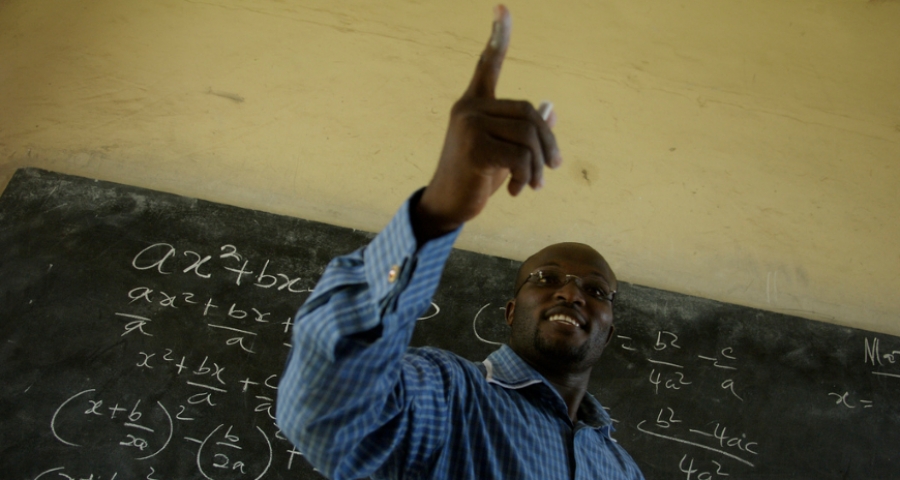Self-direction and support
"The wisest school and system leaders have always known that teacher development requires investment and priority. Whether seeking to improve teaching or to bring in new resources or ideas, there can be no success without a deep commitment to invest time and resource to develop the expert practice that our pupils deserve. After all, developing great teaching everywhere is the route to educational excellence everywhere." - Letter to Nick Gibb from David Weston and the Teachers' Professional Development Expert Group (2016).
David Weston and his team have made a fantastic and much needed contribution to CPD and I recommend everyone involved in teacher training read Standard for teachers' professional development (published July 2016) from the Teachers' Professional Development Expert Group (TPDEG).
My ethos and process is heavily influenced by the TPDEG and can be summarised as:
1. Training tutors to want to improve and to have a readiness to learn.
2. Ensuring tutors have access to the tools and support to help them achieve the first point.
So, how do you improve a tutor?
We’re all aware of those – hopefully decreasing few – who continue to hold the opinion that ‘great teachers are born not made’. Well, opinions and anecdotes can be a good starting point to initiate a wider discussion, but thankfully we now have the evidence. The Sutton Trust’s (2014) study ‘What makes great teaching’ drew upon a broad range of existing research to disprove the myth, including clear steps that practitioners and leaders could take to improve their teaching. A recent (2016) Economist article is clear that ‘teaching can be taught’, but also that “[some] schools neglect their most important pupils: teachers themselves.”
This is the process I use to transform Maths specialists into excellent Primary Maths tutors.
Step 1. High recruitment standards
Every year my colleagues and I increase the entry barriers for tutors. In addition to teaching a Maths lesson and having a thorough interview, all candidates must complete two assessments:
1. A two hour English test that is independently assessed and accredited by the British Council.
2. The TSL Maths test assesses a variety of skills and has been specifically designed to test their ability at Mathematics (knowledge and skill):
- To identify a pupil’s error or misconception.
- To identify the best way to teach a concept.
- To be flexible in ‘mimicking’ a pupil’s way of working that is Mathematically valid and yet may be unfamiliar to the tutor.
- To problem solve and then explain thinking.
Step 2. Two weeks of teacher led tutor training in Maths and the National Curriculum
This highly intense training focuses on UK Maths pedagogy (KS1-3), which is in line with the National Curriculum. Tutors are guided on how to develop three key skills in each of their pupils: mathematical fluency, reasoning and problem solving.
Throughout this, a strong emphasis is placed, as educational specialists, on developing the growth mindset of both pupils and, crucially, tutors.
Step 3. Effective tutor assessment
Over the years, my colleagues and I have developed the tools and skills to be able to consistently assess tutor quality at both the individual tutor and whole tutor population level. A key part of the effectiveness of this is my emphasis on triangulation of multiple sources of data (2014, Sutton Trust Report). This is how I do it:
a) Every session is recorded – tutors use this to identify their own learning needs.
b) Each tutor has one session (randomly) evaluated per week against our session criteria (based on OFSTED and work with the IOE), leading to each tutor being given up to three strengths and three areas for improvement. This is followed-up by a 10-15 minute face-to-face feedback session between the tutor and their ‘Academic Counsellor’.
c) I then use the macro data from these evaluations (session observations) to identify the training needs of each tutor on a weekly basis.
Step 4: Tailored ongoing training
Part of my school-based role was to help oversee the performance management and appraisal of staff such as observations, book trawls and academic results. All played a part, but as teachers and leaders, we never really felt fully confident in the efficacy of the processes we’d designed. Were we really able to give the timely individual support that all of our hard-working colleagues deserved?
Through my work alongside our tutor trainers; I’ve had the opportunity to experience delivering several one-to-one Maths sessions myself. The instant access to the recording of my sessions really helped me to be honest about my own teaching practice and identify areas for improvement (eg reduce teacher talking time).
Step 5: Weekly schedule of training
The clue’s in the name – CPD should be continuous. The mistake that so many institutions make is to introduce it on one-off days or sessions that are then forgotten a few weeks later. My colleagues and I have, therefore, made a deliberate effort to build in a weekly programme of team training that is completed by every one of our tutors. Here’s our weekly schedule:
- Monday and Tuesday
Academic counsellors lead delivery of training to small teams of tutors on key pedagogy topics identified from the 100s of session observations conducted each week.
- Wednesday
Reserved for self-evaluation / reflection. Tutors watch their own sessions, guided by an online reflective journal.
- Thursday and Friday
Group peer evaluations. Each individual team member listens to the same session and evaluates it using our specific criteria. They then sit together as a group and discuss the session/learning (not the tutor).
- Bonus 3 steps to try yourself…
Interested in improving your own practice and your impact on the pupils you teach? These are the three things I’ve tried that have made the most difference to me.
1. Consider recording one of your lessons (with appropriate permission).
Actors and elite athletes have used this technique for years. 5-10 minutes is more than enough to start with (even recording just the audio is powerful). Checkout Bill Gates’ (2013) TED Talk: ‘Teachers need real feedback'.
- Relatively low-tech solution: Use your smartphone’s recording function.
- High-tech solution: Iris Connect specialises in recording for education and has a good reputation (although I have no personal experience or affiliation).
2. Encourage informal peer-observations (20 minutes)
Use a positive template (‘surplus model’ – focusing on the learning). Start small - maybe with a friendly colleague.
3. Triangulate your sources
Pupil feedback must always be put into the right context but it can be a valuable element to your teaching. Whatever works for you is best.
- Low-tech solution: Post it notes placed on the door as pupils leave.
- High-tech solution: Try out Socrative which includes solutions to get pupil feedback (and pose questions).
Further reading
For anyone interested or involved in teacher training, I strongly recommend the latest Standard for teachers' professional development (published July 2016) from the Teachers' Professional Development Expert Group.
How do you develop Maths teachers? Let us know below.


















